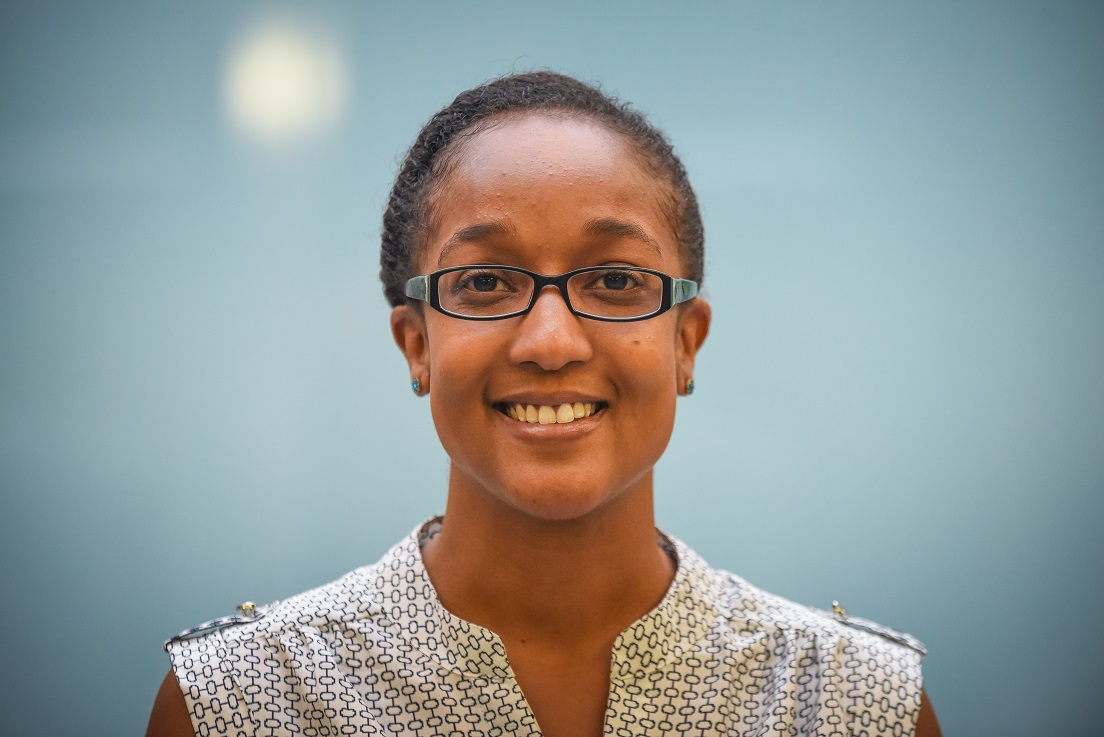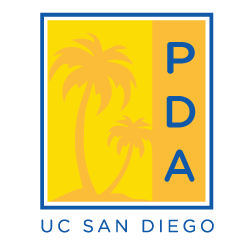
Renee Higgins, Ph.D.
Scientist, Assay Development | Salveo Dx

- Interview Overview
Interview Overview
Interview: Alexandra Bortnick
Transition: April 2015
Interview: July 2016
1. Please list your previous department at UC San Diego and provide a brief description of the research you conducted?
As a postdoc, I was in Eric Bennett’s lab in the Division of Biological Sciences. I studied the role of the ubiquitin proteasome system in aging related diseases. Specifically, we identified a novel site-specific regulatory 40S ribosomal ubiquitylation involved in eukaryotic translational control.
2. Please describe your current job profile?
I currently serve as a research and development scientist for SalveoDx, a new consumer-facing diagnostic company here in San Diego.
3. What made you decide to transition into your current position?
Transitioning into industry was not an easy decision for me. I loved working in academia and the freedom it allowed me in my research. For me, what was missing was seeing my work impact the general public. More than papers, I wanted to directly change lives. A little over a year ago, I decided to exit academia and being working in industry and have enjoyed it ever since.
4. Apart from the research you conducted, do you feel like anything in particular has helped you acquire your current position?
NETWORKING. I cannot emphasize that enough. My current position is actually my second since leaving my postdoc. The first company I worked for had a reorganization that left me job-hunting again after just 6 months. I was nervous because I still didn’t have a ton of industry experience but I was able to land my current position rather quickly because of all of the amazing connections I made at my first job. When you are a team player and bring positive energy to a position, you’ll be amazed at how many people look out for you and are there to lend a helping hand when you need it.
5. Please list some of the most striking similarities and differences between your postdoc and current position?
Similarities:
- Collaboration is key; you can accomplish a great deal working with a team.
- Time management skills are necessary to accomplish everything required of you.
- Many of my every day activities in academia, creating protocols, troubleshooting experiments, training other scientists, presenting my findings verbally and in written form are things that I do now.
Differences:
- I have a healthier work-life balance now than I did as a postdoc. I was so focused on getting data and publishing that I frequently neglected myself. Industry feels more like a marathon than a sprint; I pace myself.
- More meetings! I have at least 1 meeting/day. That was one of the biggest culture shocks for me. I spend a lot more time discussing game plans and ensuring that we are all on the same page.
- Product focused. In academia, my output was data and funding. In industry, we are focused on getting a product out. Sometimes that means lots of publications. But often that means that you don’t see the fruits of your labor until the product launches.
6. Is there any specific challenge (during the entire process of transitioning) that you would like to highlight and, if so, how did you overcome it?
The biggest challenge for me was landing that first position in industry. I had so many interviews trying to sell myself for a position, and I frequently had a difficult time articulating why I would be a successful and good candidate for the position.
I realized (after a couple of hard interviews) that I wasn’t accurately capturing who I am on my resume. I am a molecular biologist by training but my resume was littered with “toxicology,” “pharmacology,” and “medicinal chemistry” because those were the focus of my classroom education. Once I changed the focus of my resume to capture my expertise, my interviews went more smoothly.
7. Please describe your goals and ambitions for the next 5 years?
My goal for the next 5 years is to develop into a director of a medium-sized research group. I am hoping that I remain within the diagnostic industry because I really enjoy this line of work.
8. What do you feel you could have done more, as a postdoc, to help prepare you for or acquire your current position?
I feel as though I did a good job trying to balance my work as a postdoc and my growth as a scientist. I took the micro-MBA course through Rady (I highly recommend it!) to learn more about the business side of science. I think I could have done a better job networking outside of the academic realm. There are many professional organizations that I did not learn about until after I started working in industry.
9. What do you feel is the most important advice you can give to a current UCSD postdoc in order for them to obtain a position such as yours?
- Acquire some industry-related skills – ie: take the micro-MBA course, or a certification course through UCSD extension. Don’t just focus on your next publication.
- Get out there! Apply apply apply. You may have some hard interviews, but learn from them, modify your approach and try again.
- Start applying now. Often times, getting that first job in industry is about being the right person for the right position at the right time. If you wait 6 more months, the position that you are most qualified for could have already been posted and filled.
- Network! Find a professional group and start going to networking events. While there, focus on getting to know other people, not on just landing that next job. It is the relationships that you cultivate at these functions that can pay off in the long run.
